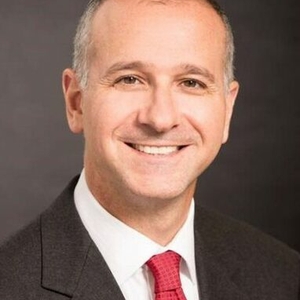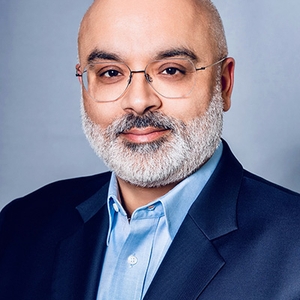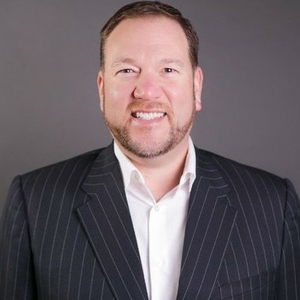Downstate, Bloom Energy, and Con Edison Install Energy Fuel Cells on Campus to Supply Hospital with Off-Grid, Clean Energy
At Zero Cost to Taxpayers, New Fuel Cell Technology Makes SUNY Downstate Part of the Solution in Reaching Governor Cuomo’s Renewable and Clean Energy Goals
BROOKLYN – SUNY Downstate Medical Center today unveiled an innovative new initiative to provide the institution with a new, clean-energy power source that will reduce the strain on Brooklyn’s power grid and help to reduce air pollution in the borough. Through a partnership with Bloom Energy and Con Edison, a significant portion of the campus’ energy needs will be met through a 1.8-megawatt fuel cell system that will produce clean energy at zero cost to taxpayers, and help further SUNY Downstate’s deep commitment to community health improvements. The carbon reduction of this project is the equivalent to removing 714 cars from the road.
“SUNY Downstate is a critical partner for Brooklyn, and this initiative will not only reduce our burden on the local energy grid but also reduce our carbon footprint in the borough,” said SUNY Chancellor Kristina M. Johnson, Ph.D. “This fuel cell installation at Downstate reflects our commitment to Governor Cuomo’s comprehensive energy strategy for New York and will serve as a model for future beneficial projects across the state. And, I want to commend Dr. Riley for making community health and a strong commitment to Brooklyn the forefront of Downstate’s mission.”
“SUNY Downstate has a commitment to our patients and students, as well as to the entire community we serve, and we are committed to ensuring that our institution helps make Brooklyn a healthier place to live, work, and raise a family. It’s not an exaggeration to say that today’s announcement helps move us toward that goal,” said SUNY Downstate President Wayne J. Riley, M.D. “This state-of-the-art fuel cell technology will generate reliable electricity for our campus on-site, make more energy available to the community in times of peak demand, and reduce air pollution. I am delighted to be working with our industry partners, Bloom Energy, and Con Edison to make this possible.”
The fuel cell system provided by Bloom Energy – an industry leader in solid oxide fuel cell technology generating clean, highly-efficient on-site power – comes at zero cost to taxpayers or SUNY Downstate. Bloom’s energy servers convert natural gas to electricity through a highly efficient, non-combustion process and operate 24/7 without any intermittency. The fuel cell unit will provide 45 percent of Downstate’s base electrical load, including two-thirds of the electricity needs of the University Hospital of Brooklyn (UHB), which operates 24 hours a day.
“The use of distributed generation to help supplement traditional utility infrastructure is a cutting-edge idea that supports the vitality of communities,” said Bloom Energy Chief Operating Officer Susan Brennan. “Bloom Energy’s fuel cells are uniquely suited to this kind of project. We provide an extremely compact, energy-dense platform that can be relied upon for clean, affordable electricity 24 hours a day, 365 days every year.”
The campus will also see significant savings as the fuel cells will decrease Downstate’s demand on Con Edison by half.
As part of Con Edison Brooklyn-Queens Neighborhood Program, SUNY Downstate received an incentive of $1.3 million to offset some of the initial costs of the project and to fund other energy-saving initiatives on campus. The fuel cell deployment is the largest project to date—by megawatts—in the Brooklyn-Queens Neighborhood Program, which works with customers in certain fast-growing areas of Brooklyn and Queens to use technology to manage their electric usage effectively. The company has worked with customers on solar installations, battery storage, energy efficiency and other technologies to cut usage and lower the bills of residential and business customers.
With the Neighborhood Program, Con Edison can defer investments in traditional energy infrastructure, saving money for its customers. The program has been successful, and Con Edison is expanding the concept to other parts of New York City.
Con Edison’s original goal was to close a 52-megawatt gap with non-traditional solutions with an investment of $200 million. The company met the goal with $60 million left over and received permission from its regulator to invest that money in additional alternative energy solutions.
The SUNY Downstate project is the largest in the Neighborhood Program to date.
“The SUNY Downstate project is an important part of our Neighborhood Program,” said Con Edison Energy Efficiency Director Vicki Kuo. “It will provide the campus with clean power and help us keep our service reliable at times when the demand for electricity is highest. And all of us in New York City will benefit from the reduction in emissions.”
“I commend SUNY Downstate Medical Center for implementing clean energy technology that will reduce carbon emissions and help us protect Brooklyn’s environment for future generations,” said Brooklyn Borough President Eric Adams. “Fuel cells are a reliable and sustainable source of power that can transform our power grid and ensure that we meet our energy demands without burdening taxpayers or our ecosystem. This initiative will help ensure that this critical health campus continues to serve Brooklynites for years to come.”
“I want to commend Dr. Wayne Riley and the leadership of SUNY Downstate Medical Center for spearheading the implementation of clean energy through the use of fuel cell technology,” said NYC Councilmember Mathieu Eugene. “These innovative measures will greatly reduce this neighborhood’s dependency on the electric grid, while also allowing SUNY Downstate to provide quality medical care during peak periods of energy use. By reducing our carbon footprint, we are creating a cleaner and healthier future for the next generation of New Yorkers.”
According to Bloom Energy, the Energy Servers will avoid the emission of up to 8.4 million pounds of carbon dioxide per year, which is equivalent to eliminating the emissions generated by burning approximately four million pounds of coal. The energy servers also virtually eliminate other forms of air pollution such as nitrogen oxides, sulfur dioxide, and particulate matter. These environmental benefits are achieved by offsetting generation from centralized gas-fired power plants on the local grid.
“As power and air quality have long been a concern for many of our communities, SUNY Downstate’s recent steps towards renewable, clean energy are timely,” said SUNY Downstate Community Advisory Board Member Rev. Charles Galbreath. “Leadership, often means being the first to go—I’d like to applaud Downstate, Con Edison, and Bloom Energy for taking that first step in bringing reliable power and cleaner air to the residents of this community.”
SUNY Downstate Medical Center is the borough’s only academic medical center for health education, research, and patient care, and is a 342–bed facility serving the healthcare needs of Brooklyn’s 2.6 million residents. University Hospital of Brooklyn is Downstate’s teaching hospital and is backed by the expertise of an outstanding medical school and the research facilities of a world-class academic center. More than 800 physicians, representing 53 specialties and subspecialties—many of them ranked as tops in their fields—comprise Downstate’s staff.
A regional center for cardiac care, neonatal and high-risk infant services, pediatric dialysis, and transplantation, Downstate also houses a major learning center for children with physical ailments or neurological disorders. In addition to University Hospital, Downstate comprises a College of Medicine, College of Nursing, College of Health-Related Professions, a School of Graduate Studies, a School of Public Health, and a multifaceted biotechnology initiative, including the Downstate Biotechnology Incubator and BioBAT for early-stage and more mature companies, respectively. For more information, visit www.downstate.edu.
Con Edison is a subsidiary of Consolidated Edison, Inc. [NYSE: ED], one of the nation’s largest investor-owned energy companies, with approximately $12 billion in annual revenues and $49 billion in assets. The utility provides electric, gas, and steam service to customers in New York City and Westchester County, N.Y. For additional financial, operations and customer service information, visit www.conEd.com, for energy efficiency rebates and incentives www.coned.com/energyefficiency, and on Twitter and Facebook.
Bloom Energy was founded in 2001 with a mission is to make clean, reliable, and affordable energy for everyone in the world. To fulfill this mission, the company has developed a distributed, on-site electric power solution that is redefining the $2.4 trillion electric power market. Our solution is a stationary power generation platform built for the digital age. The Bloom Energy Server is capable of delivering highly reliable, uninterrupted, 24×7 constant (or base load) power that is also clean and sustainable. Commercial and industrial electricity customers are our initial focus and our customer base includes 25 of the Fortune 100 companies. Some of our largest customers are Equinix, AT&T, The Home Depot, The Wonderful Company, Caltech, Kaiser Permanente, and Delmarva Power. Bloom Energy is headquartered in Sunnyvale, California. For more information, visit www.bloomenergy.com.




